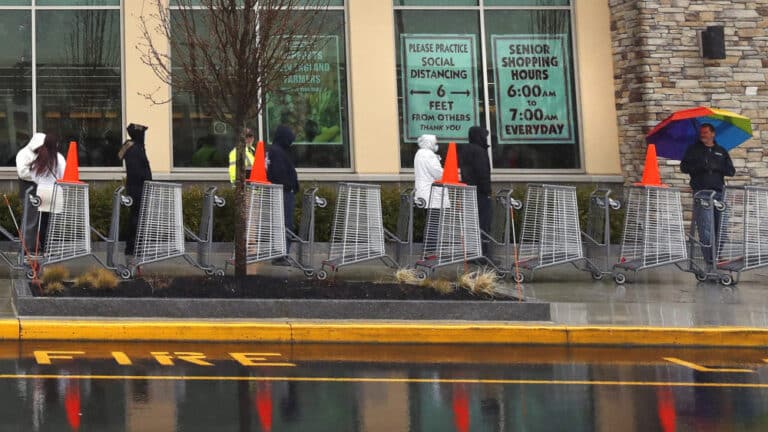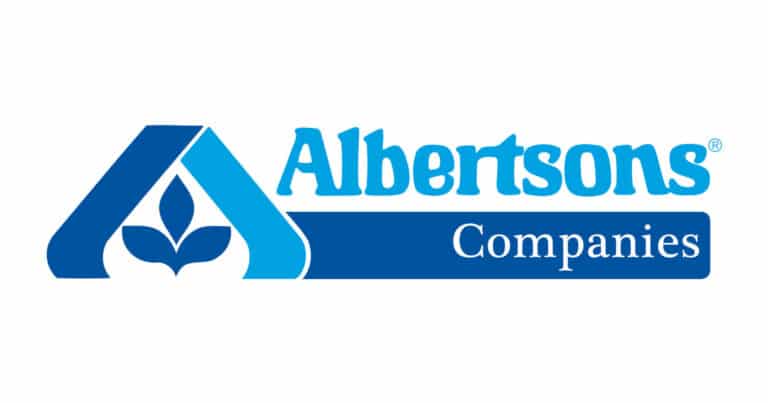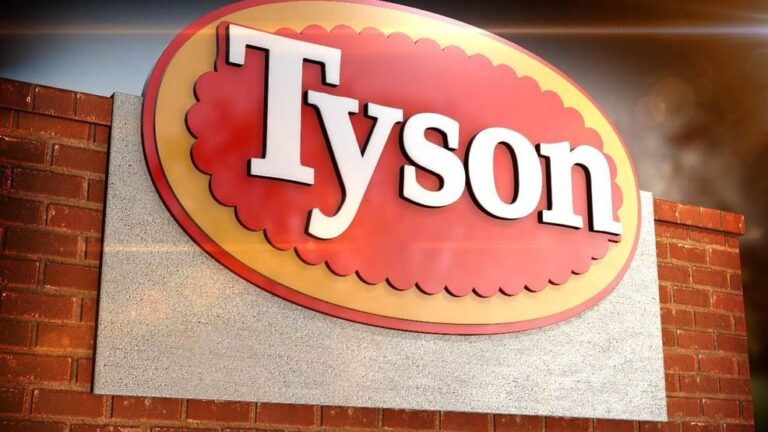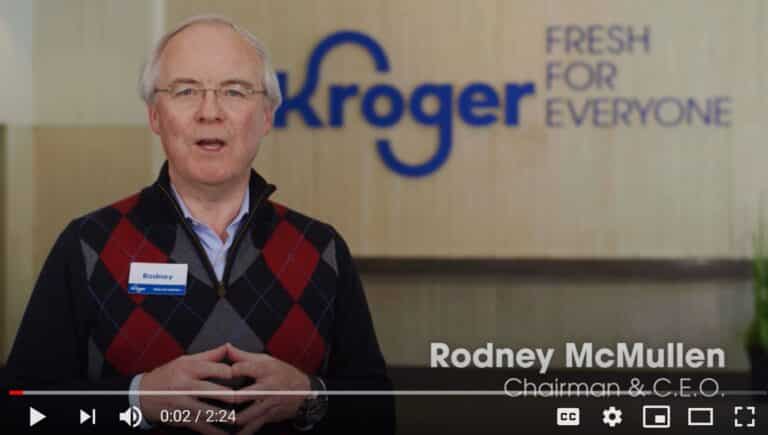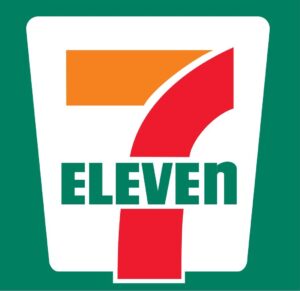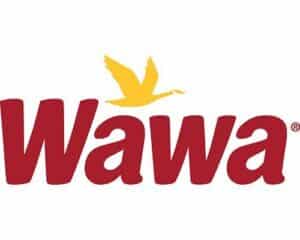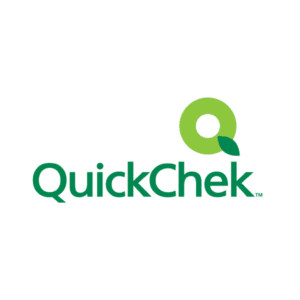As supply chains continue to become more normalized, retailers face other challenges in their efforts to keep their stores open, their associates protected and their customers adequately served during the COVID-19 pandemic.
April was one of the toughest months in recent American history. As of May 1, there were more than 3.7 million positive cases detected globally with more than 265,000 deaths. In the U.S. more than 1.3 million people have been infected resulting in more than 75,000 deaths.
While a growing number of states have allowed some businesses to reopen, the Mid-Atlantic and adjacent Northeastern states remain pretty much on lockdown, with only people allowed to travel to work in essential businesses. From the outset, those who manufacture, distribute and sell food have been the exception. Front line workers in grocery stores, at distribution centers and at manufacturing plants have remained on the job, working tirelessly to keep supply chains and cash registers open to serve their customers.
But that has come at some cost. Of the approximately 25 retailers we’ve talked to over the past three weeks, most report their absentee rate – due to illness or fear of becoming infected – at about 15 percent.
On April 28, the United Food and Commercial Workers (UFCW), the largest union representing retail food employees, said 5,322 members are not at work and at least 72 are dead due to coronavirus. That total includes employees in grocery, retail, pharmacy, meatpacking and other essential industries who tested positive for COVID-19, missed work due to self-quarantine, are awaiting test results, have been hospitalized and/or are symptomatic. It is estimated that the UFCW represents about 20 percent of all food store employees in the U.S.
“America’s frontline workers in grocery stores, pharmacies, meatpacking plants and many other essential businesses are putting their lives on the line every day to ensure families have the food and medicine they need to stay safe during this crisis. These workers never signed up to be first responders in an emergency. But that is exactly what they are now, and they need protections immediately before more lives are needlessly lost,” UFCW International president Marc Perrone said. “The human cost to America’s food, retail and commercial workers is real and growing,” Perrone noted. “From grocery stores to meatpacking plants, from senior care facilities to pharmacies, the impact on workers’ lives from this coronavirus is beyond tragic, and this crisis must be stopped before it gets worse.”
Grocery merchants have tried to safeguard their associates (and their customers) in a number of ways including: the wearing of face coverings and gloves; installing sneeze guards at check stands; implementing safe social distancing guidelines with signage; providing hand sanitizing stations; increasing their in-store cleaning frequency; creating markers/arrows on the floor of each aisle indicating the direction to shop; and enforcing occupancy limits so stores don’t become overcrowded.
Other measures that some retailers have implemented include: closing in-store cafes/eating areas; closing salad bars and soup stations; eliminating service deli (which is then replaced by pre-sliced, packaged meats and cheeses) while also temporarily suspending service bakery and replacing those items with pre-packaged items. More recently, some retailers are mandating temperature checks for their associates and customers.
And retailers have also rewarded their associates, offering temporary wage increases of $2-$4 per hour for their service, dedication and bravery.
As grocery operators adjust to the hurdles of dealing with safety and additional sales at store level, it’s clear that shopping patterns have changed. And many think those changes will lead to a “new normal” when the number of positive cases significantly decreases and Americans can feel confident to interact with others and resume their previous lifestyles (at least to a large degree).
Perhaps the most notable change involving shopping habits has been the huge increase in online purchases. In a study released in late April by industry consulting firm Brick Meets Click (BMC), online grocery sales (delivery and pickup) jumped 37 percent last month (compared to March 2020) to $5.3 billion. And March’s number had also increased significantly. In BMC’s data, online orders were up by 33 percent and order size grew 3 percent to $85 per order. Shopper frequency also increased from 1.2 orders per month in March to 1.6 orders in April. BMC worked with Symphony RetailAI Online on this project and Kevin Sterneckert, chief marketing officer for the analytics firm, said: “The ongoing shifts in spending mean that retailers will need to work carefully in applying historical sales data to forecast future sales, if they are going to be accurately aligned with shoppers. True demand, which includes lost sales and other characteristics beyond transactions at the register, is crucially important here. Today’s retail winners will be those that best understand their customers and can meet and exceed their expectations the fastest.”
While the momentum generated by online purchasing will no doubt carry over to some degree when normalcy occurs, physical stores have experienced record sales. On April 30, Albertsons posted a 47 percent jump in ID sales for March and a 21 percent jump in April (through April 25). Other supermarket retailers that posted booming ID sales in March included Kroger (30 percent) and Ahold Delhaize USA (34 percent). Retailers from other channels that experienced healthy March revenue include Costco (11.7 percent ID sales increase), Walmart (20 percent ID revenue gain) and Target (20 percent jump in ID sales). For the non-supermarket merchants, those numbers were significantly higher if only food purchases were measured. All those retailers also saw their online revenues surge. And in early May, food retailers also began to report earnings for their last three months. Weis Markets’ profit grew 87 percent, Sprouts’ net income jumped 63 percent and Ahold Delhaize’s earnings increased 48 percent.
A closer look also indicates that certain departments are experiencing record sales. A survey by the American Frozen Food Institute (AFFI) showed that frozen sales exploded in mid-March (94 percent sales gain) and April’s gains remain at 30-35 percent over the previous year. In fact, one of the few remaining departments that retailers tell us remains challenging (in dealing with out-of-stocks) is frozen food, which undoubtedly has curtailed potential sales.
Another department that is booming has been meat with overall sales for beef, pork and chicken up more than 45 percent in March. However, keeping proteins in stock has been a major hurdle for retailers in recent weeks and meat will be even harder to find in the coming months.
While President Donald Trump has mandated that all U.S. meat plants remain open, the toll that COVID-19 has taken on processing facilities in the U.S. has been significant. More than 5,000 front-line workers at major meatpackers such as Tyson, JBS, Cargill and Smithfield have tested positive for the virus resulting in more than 20 deaths as of May 8. Moreover, all of those huge processors have had to shut some of their plants down, at least temporarily. Because of those closures, the supply chain is being choked at the distribution level and shortages and price hikes were beginning to occur in late April. By early May, many retailers began limiting meat purchases by their shoppers (usually a two or three item maximum).
Here is a recap of the actions retailers that operate stores in the Northeast have taking in response to the pandemic:
7-Eleven: 7-Eleven Inc. committed nearly $95 million to support franchisees. 7-Eleven Inc. purchasing and supplying franchisees with necessary cleaning supplies, at their cost, including hand sanitizer, hand soap, sink sanitizer, gloves, disinfectant, social distancing floor decals, thermometers, face masks, face shields. Donated 1 million face masks to FEMA. Earlier measures – enhanced standards for hygiene, handwashing, sanitation, food handling and preparation; increased frequency of cleaning high touch surfaces; encouraging social distancing; installing plexiglass sneeze guards, visual floor markers; purchase limits on some items; all open-air, self-serve fresh food items transitioning to being clerk served; fresh baked goods sold pre-packaged; fresh condiment bar replaced with selection of pre-packaged condiments; discontinued use of personal cups for hot, cold beverages; recommended stores temporarily close from midnight-5:00 a.m. for restocking, cleaning; enhanced paid time off for corporate store employees; announced plans for as many as 20,000 new associates to be hired; offering 7NOW delivery where available. For more information, go to 7-Eleven’s website.
Adam’s Fairacre Farms: Temporarily changing store hours, including special store hours for seniors 60+, those with high risk health issues; closed all café seating areas; modified self-service bars to staff serviced with packaged items; increased in-store signage with tips for sanitation; suspended sampling; increased in-store sanitation, especially at high touch areas.
Adam’s Hometown Markets: Reduced hours for restocking, cleaning.
Albertsons Companies (Safeway Eastern, Acme Markets): Will continue appreciation pay until at least May 2, providing frontline associates another $2 per hour beyond regular pay and overtime plus $100 per week to salaried frontline team members; working with UFCW to obtain ‘extended first responder’ or ‘emergency personnel’ classification for supermarket associates so they can be prioritized for testing and PPE; commits $50 million to alleviate hunger across its national retail footprint via its “Nourishing Neighbors Community Relief” campaign. Earlier measures – All vendors, including delivery drivers, salespeople, merchandisers, other vendor employees, must report to a designated Health Screening Station in each store location before beginning any work in the store every day; vendor employees entering via receiving must report to Receiving Area Screening checkpoint; vendors entering via main entrance must report to Time Clock Screening Checkpoint.; following, county-by-county, any update executive orders re: masks being mandatory; associates washing hands at least once/hour; in process of sourcing disposable gloves and masks; installing cart wipes and hand sanitizer stations throughout the stores; paused self-service operations like soup, wing and salad bars; implemented social distancing measures through one-way traffic with directional arrows on floors; limited store occupancy; self-check health screenings for associates, customers, vendors; dedicated cleaning staff; masks for all store, distribution, manufacturing associates; installing plexiglass at check stands; pausing self-service operations; enhancing cleaning measures; special shopping times for expectant mothers, seniors and other at-risk populations; pay increases of $2.00/hour for e-commerce pickers and drivers, store, distribution center and manufacturing plant associates; partnering with major businesses to offer part-time jobs to their furloughed employees; waiving delivery fees for grocery stores and pharmacies throughout the company.
Aldi:CEO Kevin Hart communicated to customers that the retailer will continue to maintain its strong EDLP pricing model: “It seems as though, in the blink of an eye, everything has changed. While just about every aspect of our lives might look a little different now, including grocery shopping, I want to assure you that one thing will never change at ALDI: our commitment to offering you the lowest prices, every day.” Earlier measures – Requiring all store and warehouse employees to wear masks or face coverings. Begins limiting number of customers in stores to five per 1,000 square feet of store space with associate outside each store keeping track of customers entering, exiting and cleaning carts; rolls out one-way aisles; taking temperatures of store, warehouse associates and asking basic screening questions; installed protective barriers; made masks and gloves available to associates; encouraged social distancing with signage; increased frequency of cart cleaning.
America’s Food Basket: Discontinued refunds, returns, established “all sales final” policy; depending on location, stores may adjust hours to disinfect, re-stock; weekly promotions stopped until further notice.
Associated Supermarket Group: Most of the independent retailers in the group are encouraging social distancing; taking steps and protocols to implement CDC and state recommendations; providing masks, gloves to their employees; installing plexiglass at registers; professionally sanitizing premises frequently; asking customers to cover their faces while shopping and to properly dispose of masks and gloves after leaving the stores. ASG has arranged for supermarkets in their network to have access to PPE for their employees.
BJ’s Wholesale Clubs: Instituted ‘appreciation hour’ for first responders and healthcare workers to shop. Earlier measures – Instituting temperature checks for all team members before starting their shifts; begin to make gloves, masks available to associates who want them; adding new social distancing measures; capacity limits in clubs based on square footage; BJ’s Charitable Fund adds $500,000 donation to support hospitals in its footprint; one-time bonus for managers and key store personnel of $500-$1,000; increased wages by $2.00/hour; dedicated shopping carts for seniors; waived absenteeism policy; pay of up to 14 days for associates in mandated quarantine; pay through a mix of accrued sick time and company paid time if associates tests positive and has to quarantine; team member relief fund; actively hiring permanent and temporary positions; ban on all team member travel unless business critical; home office team members working remotely; dedicate shopping hours for seniors.
Balducci’s: Begins requiring all associates to wear protective face coverings, masks. Earlier measures – premium appreciation pay of $2.00/hour; 24-hour hotline for associates with questions about COVID-19; emergency sick-pay fund; increased associate discount (35%) and meals; limiting store occupancy to 30 percent; asking customers to limit to one person per family doing the shopping at the same time; plexiglass shields; tape and arrows on floor to maintain social distancing.
Best Markets: Instituted senior shopping hours; requiring masks for entry to its stores; limiting number of customers in stores at one time. Earlier measures – Modified uniform policy to allow associates to wear gloves and masks; providing masks and gloves for associates; installed protective barriers at checkout; limit on number of shoppers in the store at one time; shortened store hours for re-stock and sanitation; encouraging 6 feet personal distancing policy, inside and outside the stores; no reusable bags permitted; encouraging customers to use contactless pay methods; store employees over the age of 65, or with documented health conditions putting them at higher risk of complications related to COVID-19, is encouraged to stay home during this public health emergency and they will continue to be paid while they are out.
Big Y: Implemented a price freeze on more than 10,000 items as of May 1, 2020. More items are expected to be added to the freeze list. Some freeze list prices may actually go down during this period, but none would go up, and Big Y’s popular sales will continue. Despite the current volatility of food prices, Big Y has pledged to hold the line on these price freeze items. Earlier measures – Posted customer limits in stores; limiting shopping trips to one person per household; customers and employees required to wear face masks/coverings; requiring 6 feet of social distancing. Limiting store capacity to levels lower than required by Massachusetts and Connecticut; if capacity reached, associate will assist customers queuing up outside store to maintain 6 feet of social distancing; stores closed Easter and the subsequent Monday to give associates a two-day break; encouraging employees to wear masks and gloves; actively working with government and suppliers to make masks available; providing non-food handling gloves to associates for cleaning as well as to cashiers, baggers who choose to wear gloves; gloves must be changed once every hour; employees must continue hand-washing once every hour even if wearing gloves; adding social distancing markers, plexiglass shields; asking customers to limit to one shopper per trip per household; adding multiple daily store cleanings; adjusted store hours; increased wages by $2.00/hour for hourly employees from March 22 through April 25 in stores, support center, facilities and distribution center; encouraging social distancing; discontinued administration of all vaccines; supporting food banks; suspended rain checks; closed all self-serve food options.
Boyer’s Markets: Customers must wear face masks to enter store. Earlier measures – Shortened store hours and reserved hours for seniors; adjusted teammate attendance policy; increased cleaning and sanitation; stress on handwashing, use of gloves and sanitizer; increased placement of hand sanitizer stations throughout the stores; limits on certain high-demand items.
Bozzuto’s: Hometown Foundation Inc. created comprehensive, multi-faceted campaign to raise funds for COVID-19 relief which will be used to purchase hand sanitizer, cleaning products, food supplies to help keep essential emergency response personnel, medical professionals safe on front lines.
C&S Wholesale Grocers: Adapted no-contact delivery service; giving frontline workers special appreciation bonuses; additional paid time off; quarantine pay policy includes full pay for the duration of workplace quarantine for up to two weeks; covering 100 percent of telemedicine costs for associates; work from home for those who can do so.
Caraluzzi’s: Shortened store hours; set aside time for seniors and immunocompromised; sanitizing stores throughout day and heavily at night; limited numbers of certain high demand items; instituted all-sales final policy; dedicated staff traveling throughout store wiping down high contact surfaces; suspended can and bottle returns; encouraging social distancing.
Corrado’s: Adjusted store hours, by location; curbside pickup for online ordering; encouraging customers to use masks, hand sanitizer.
Costco:Most locations returning to normal shopping hours, with first hour each day set aside for seniors, vulnerable shoppers. Earlier measures – Limited fresh meat purchases to three items per member among beef, pork and poultry products. Will begin requiring all customers to wear face masks when entering its stores; most U.S. warehouses, gas stations will return to regular operating hours; select locations will be open one hour earlier on weekdays for members who are 60 or older, and people with disabilities. Priority access during all store hours for Costco members who are healthcare workers and first responders; no more than two people in a warehouse for each membership card; new closing hours, varying by location; special shopping hours for seniors Tuesday-Thursday; product limits on high-demand items; reduced returns; reduced service in some departments, like hearing centers, optical, floral, jewelry; take-out only at food courts; encouraging social distancing behaviors.
CVS: Expanded testing to 50 sites, including 9 in PA. Earlier measures – Adding 2-day delivery for prescriptions; commits to hiring 50,000 new associates; announced it will donate more than $5 million worth of seasonal treats to local community organizations across the country to help families celebrate upcoming holidays, including Easter; CVS Health and its foundations giving more than $1 million in new investments to address food insecurity and other community needs in response to ongoing challenges presented by the COVID-19 pandemic; CVS Health Foundation will also match up to $1 million in employee contributions to the CVS Health Employee Relief Fund, a public charity supporting colleagues during unanticipated and unavoidable financial hardships and emergencies, making $1,000 grants available to employees to address qualifying emergency needs related to the pandemic; free COVID-19 testing for eligible residents in Massachusetts, Rhode Island, Georgia; free delivery on prescriptions, other store essentials; drive-thru for prescription pick-up; Minute Clinics open; added disinfectant wipe stations; signage, floor markers to assist with social distancing; employees wearing CDC approved masks, gloves; new protective panels at checkouts, pharmacy counters; fewer signatures required on PIN pads.
D’Agostino’s: Providing employees with gloves, procured masks; installing sneeze guards; set aside hours for seniors, other with compromised; sanitizing high touch areas throughout the day.
Eddie’s of Roland Park: Increased frequency of cleaning; working to ensure availability of gloves, cleaning products.
Fairway Market: Employees required to wear masks consistent with state, local rules, regulations; increased frequency of sanitizing during open hours; enhanced deep cleaning each night by contracting with environmental cleaning companies; operating under social distancing guidelines; staggering employee starting and departing times, breaks; installed sneeze guards in cashier lanes; provided additional compensation to part- and full-time hourly employees for a limited time; following CDC best practices for food preparation; reinforcing handwashing; cooking classes, food samplings cancelled; suspended return policy; closed all seated areas for in-store dining.
Family Owned Markets: Encouraging social distancing; cancelled all ads, magnet mailers and many sale items.
Fine Fare Supermarkets: From the company’s website – “We at Fine Fare want to thank you for your patience and loyalty. Every single Fine Fare employee, from our offices, drivers, distributors and store employees, are working extremely hard to provide you with your essential needs. Our #1 goal is your well-being and safety.”
Food Bazaar: Continuing to provide reminders to employees on good hygiene; rigorous cleaning practices in place.
Food Lion:Food Lion Feeds awarded $1 million in grant funding to 600 feeding agencies across its 10-state footprint as part of its continued efforts to care for neighbors impacted by COVID-19. Earlier measures – Partnering with school districts to deliver meals to children, families by donating reusable food bags for the meal distributions, as well as $20 gift cards to supplement meals. Stressing social distancing; plexiglass panels at registers and pharmacies; dedicated associates, wearing special vests so they can be identified, are performing enhanced cleaning; special hours for seniors and others at risk; $3.1 million to assist community response to COVID-19; donations to local food banks.
Foodtown (Allegiance Retail Services): Launches social media campaign #IStayHomeForMyGroceryHeroes, following on NYC Mayor Andrew Cuomo’s #IStayHomeFor, calling for consumers to limit their grocery shopping trips. Earlier measures – encouraging social distancing; temporarily suspended returns, refunds, rainchecks; adjusted store hours for enhanced cleaning.
Gerrity’s: Now requiring shoppers to wear protective face coverings. Earlier measures – Strongly advises shoppers to wear face coverings, including homemade masks, bandannas, scarf coverings; set aside hours for seniors to shop; closing stores one hour earlier for additional cleaning; paying store associates an extra $1/hour from 3/17-4/5; closed salad, olive bars, selling pre-packaged instead; closing café seating areas. https://gerritys.com/
Giant Company (Carlisle, PA): Implementing limits on certain high-demand products, both in-store and via Giant Direct, using in-store signage, online alerts. Earlier measures – Announced $3 million donation to more than 2,000 public and private schools through it’s a+ School Rewards program as they remain impacted by the ongoing coronavirus pandemic. Announced plans to hiring an additional 3,000 team members. Announced additional $250,000 commitment to 18 hunger relief organizations in its marketing areas. 4/10 – Launched $250,000 emergency agricultural assistance, coordinated in partnership with nonprofit Team Pennsylvania, which will go to support farms, food processors and other small food businesses in the state that have been hard-hit by the COVID-19 pandemic. Companies of 250 employees or fewer involved in growing, making or processing food in the state are eligible, with a maximum award of $15,000 per business; launched social media campaign #MoreForAll to urge shoppers not to hoard groceries; special hours for seniors and immuno-compromised; providing prescription pick-up via Direct parking spaces, pay-by-phone; UPS mailing of prescriptions; social media campaign to address panic buying; modified operating hours; working to expand delivery services; hiring temporary and part-time workers across its family of brands – Direct, Heirloom Market, Giant and Martin’s; donations to local children’s hospitals for COVID-19 mitigation; donations to local food banks; $1.5 million to support its non-profit partners in its communities.
Giant Eagle: Limiting purchases of ground beef and meat items advertised in its circular to up to two packages of each. Earlier measures – Instituting occupancy limits, one-way aisles; gloves and masks provided to all team members. Set aside shopping hours for seniors 60+, differently-abled, immunocompromised; reduced hours at select GetGo locations; limited quantities on high demand items; limited availability in floral, bakery; closed full-service meat department, dry cleaning, bulk food, café seating, hot bar, hot case, salad bar, hot soup, olive bar, self-serve donuts, in-store bank; increased frequency of cleaning in restrooms, checkout lanes, payment touch pads; curbside pick-up, delivery, drive-thru pharmacy.
Giant Food (Landover, MD): Launched #HealthyAtHome #GiantFoodChallenge in May to foster virtual connections, offer guidance for ways to stay active, healthy while following guidelines for social distancing. Earlier measures – will be offering free, weekly online nutrition and healthy living classes aimed at supporting the greater community, as well as individuals with chronic illnesses such as diabetes and heart disease led by chain’s 11 licensed nutritionists. Earlier measures – Social distancing in stores; plexiglass shields; associates in masks and gloves if they prefer; asset protection team providing security; adjustment to store hours; free Starbucks coffee for first responders and healthcare professionals; some revisions to rain check and refund/return policies; donations to local food banks; $1.5 million to support its non-profit partners in its communities.
Graul’s: Set aside special hours for elderly and immuno-compromised shoppers; offering curbside pickup; increased focus on cleaning; continuing to provide wipes for carts.
Green Valley Marketplace: Face covering or mask required to shop at all locations; limited number of customers in store at one time. Earlier measures – Hiring short-term and part-time associates; nightly cleaning of food prep, high traffic areas; plexiglass dividers at checkouts; social distancing; pre-pack and ready-to-go meal, sandwiches and hot items usually found on food bars; increased availability of pre-sliced deli items; order pick-up areas set aside in deli, seafood, bakery; associates wearing gloves, optional face masks available; dedicated shopping time for higher risk groups; cart wipes, sanitizer available for customers’ use.
Gristede’s: Associates provided with gloves; secured face masks; sneeze guards being installed; hired outside cleaning service for deep cleaning stores, products after hours; sanitizing high touch areas throughout the day; set aside hours for seniors, immunocompromised, similarly disabled neighbors.
Grocery Outlet: Frequent disinfecting, especially high contact areas; hand sanitizer at checkout.
Hannaford: Face masks required for employees, urged for customers; curbside pickup, mailings for prescriptions. Earlier measures – Dedicated shopping hours for seniors, individuals with compromised immune systems, including pregnant women, caregivers shopping for immunocompromised; plexiglass protection barriers at registers; reusable bags prohibited; encouraging social distancing with signage throughout stores; limited on high demand products; not processing most refunds, returns, rainchecks, but still honoring double-back guarantee with receipt; donated $750,000 to COVID-19 response, including to food banks, homeless support.
Harris Teeter: Partnering with Kroger Health and The Little Clinic to offer free COVID-19 tests for qualifying individuals in the Carolinas. Earlier measures – Announced it will donate more than 640,000 pounds of nutritious protein and produce to various food banks, with assistance from various vendor partners. Modified hours to allow cleaning; for seniors – special in-store shopping hours, designated ExpressLane online shopping pick-up times for seniors with waiver of the $4.95 fee, or discounted fee of $5.00 for home delivery; suspending product returns; limits on high demand products; rain checks suspended; no fundraising events or store tours; customers who bring reusable bags must do their own bagging; encouraging social distancing; no in-store seating; protective shields at checkouts, pharmacies and customer service; appreciation pay – one-time bonus of $300 for full-time, $150 for part-time for associates in retail, distribution, manufacturing and corporate office; looking to hire 5,000 associates to fill retail, distribution center positions.
IGA: Educating staff on proper handwashing; increasing cleaning of high traffic areas; communicating safety standards to shoppers; shopper signage; providing proper PPE.
Karns: Revised hours to allow cleaning; special hours set aside for seniors; no rainchecks; reminding customers they can buy online via Instacart and Shipt.
Key Food: Seniors only shopping hours at some stores; enhanced cleaning per CDC guidelines; Instacart has added option for contactless delivery.
King Kullen/Wild By Nature: Shortened hours for restocking, sanitizing; set aside hours for at-risk shoppers; encouraging social distancing; those bringing reusable bags must do own bagging; purchase limits on high demand products.
Kings Food Markets: All associates required to wear protective face coverings and gloves. Earlier measures – Premium appreciation pay of $2.00/hour; 24-hour hotline for associates with questions about COVID-19; emergency sick-pay fund; increased associate discount (35%) and meals; limiting store occupancy to 30 percent; asking customers to limit to one person per family doing the shopping at the same time; plexiglass shields; tape and arrows on floor to maintain social distancing.
Kroger: Earmarked $130 million for a one-time thank you pay to hourly grocery, supply chain, manufacturing, pharmacy and call center associates, which is in addition to appreciation pay first provided to frontline workers for their efforts at the start of the pandemic in March and follows multiple hero bonuses in April through mid-May, with a final payment by May 23; this thank you pay, which will be $400 for qualified full-time associates and $200 for qualified part-time associates, will be paid out in two installments on May 30 and June 18. Earlier measures – Added purchase limits on chicken and fresh pork to two of each; announced continued protection of frontline associates by making free COVID-19 testing available (combination of self-administers kits and company’s drive-thru testing), based on symptoms, medical need. Kroger Health said it plans to expand its drive-thru COVID-19 testing model to 50 locations in more than 12 states by the end of May. Earlier measures – In partnership with its dairy cooperative suppliers and farmers across the Midwest and South, it will process and donate about 200,000 gallons of additional milk to Feeding America food banks and community groups through the end of August; updated hours, including exclusive senior shopping times – varies across companies divisions; suspended product returns, will replace produce, meat, seafood or deli that does not meet their freshness standards.
Lidl: Will conduct temperature checks of all employees at beginnings of their shifts; Earlier measures – limiting number of customers to five per 1,000 square feet with designated associate at store entrancing monitoring numbers, disinfecting carts; encouraging social distancing; installing protective shields at checkouts; encouraging all customers to use contactless pay methods; making face masks, gloves available to all store personnel; hiring up to 1,000 temporary jobs; all temporary employees without health insurance immediately eligible to receive comprehensive COVID-19 medical benefits, which waives copayments, coinsurance, and deductibles and allows virtual visits through the CareFirst Video Visit platform; current Lidl US employees enrolled in company insurance plans will automatically receive the enhanced COVID-19 medical benefits package at no additional cost; added protective barriers at checkouts; new signage on social distancing; shortened store hours.
McCaffrey’s Markets: Following CDC guidance; sanitizing high touch areas; suspended food sampling; stressing healthy workplace habits; providing cart wipes, extra sanitizer at multiple key areas throughout stores; closing hot, salad, soup, olive bars; set aside shopping hours for seniors, those with compromised immune systems.
McKay’s: Increased sanitation practices.
MOM’s Organic Markets: Asking all customers to wear a mask or mouth covering, only touch products they plan to buy. Earlier measures – Frequent sanitizing; designated employee to wipe down carts, basket handles; rolled out touchless payment via Apple Pay, Android Pay, Google Pay; switched all debit transactions to credit; in-store seating removed; frequent handwashing; sick employees told to stay home; limited in-store food, bakery services so those associates can concentrate on enhanced cleaning and stocking, as well as preparing meals for store associates; signs reminding customers about social distancing; hiring displaced workers who lost jobs due to the pandemic.
Morton Williams: Customers must wear masks to enter stores. Earlier measures – Sanitizing multiple times daily, especially high contact areas; set aside hours for seniors, the immunocompromised, similarly disabled neighbors.
Murphy’s Fresh Markets: Customers must wear masks to enter stores. Earlier measures – Dedicated shopping hours for seniors, immunocompromised; limited quantities of high demand items; no longer taking product returns; shortened hours for enhanced cleaning.
Philadelphia Wholesale Produce Market: Reducing number of people in facility at one time; adjusted hours; truck drivers required to remain in vehicles while on premises; customers required to wash hands, use protective gloves before inspecting product; encouraging social distancing; curbside pickup encouraged.
National Supermarket Association: Members have designated shopping hours for seniors.
Price Chopper/Market 32: Marked aisles for one-way shopping to help maintain social distancing; encouraged one shopper per family; stressed importance of face coverings while shopping. Earlier measures – Suspended refunds, returns, rainchecks; limits on high demand items; shortened hours; set aside hours for seniors; committed $350,000 to support established community partners at regional food banks, The Salvation Army, United Way, The Red Cross and the YMCA.
Expanding store hours to 7:00 a.m. to 9:00 p.m.; returning to normal hours in pharmacy; designated shopping hours for customers over the age of 65, first responders and health care workers are being discontinued although encourages customers who prefer to shop when the store is less crowded to come in during the 7:00 a.m. hour. Earlier measures – Announced initiative to purchase fresh milk, produce to assist farmers impacted by pandemic, will buy 150,000 pounds of produce, 43,000 gallons of milk to donate to Feeding America Food Banks. Seeking to hire thousands of new associates for store and distribution positions; setting aside exclusive shopping hours for seniors; adjusted store hours; offering rent relief to businesses operating in Public-owned shopping centers that have closed due to the pandemic and waiving maintenance and common area fees; donated $1 million to Feeding America’s food banks.
Quick Chek: Enhanced cleaning, safety protocols; mobile ordering available for subs, smoothies, espresso drinks; giving associates continual support by providing access to paid time off, flexible scheduling, educational materials, other resources.
Redner’s/Redner’s Fresh: Increased frequency of cleaning; suspended sampling; suspended self-service areas like food bars; encouraging customers to use Shipt for home delivery.
Rite Aid: Partnered with Instacart to offer same-day delivery of groceries and over-the-counter health care products chain-wide. Earlier measures –Opens COVID-19 testing site in Richmond, VA, its 25th location in addition to sites in Delaware, Pennsylvania, New York, New Jersey, Virginia. Announces plans to expand COVID-19 testing sites, including new drive-up locations with self-swab nasal tests, as part of its partnership with the White House Coronavirus Task Force; in addition to current testing site in Philadelphia, it has added a new testing site in Harrisburg, PA that will be open 7 days a week, from 9:00 a.m. to 5:00 p.m., conduct 200 tests a day; also adding drive-up testing at stores in Connecticut, Michigan, New Jersey, New York, Ohio, Pennsylvania and Virginia for self-swab tests overseen by Rite Aid pharmacists; Rite Aid Foundation announced a $5 million philanthropic package to support the nation’s healthcare providers and first responders, children, families and communities impacted by the outbreak, to address geographic pandemic hotspots and to support its associates as they continue to battle the COVID-19 pandemic; announces plans to hire 5,000 associates for full and part-time roles across the country to support store and distribution center teams; new “Pandemic Pay” policy – non-management hourly workers at stores and RediClinics or the distribution center will receive a temporary $2.00/hour pay increase from March 13-May 2; raising associate discount to 35 percent on eligible products; giving associates an unspecified “Hero Bonus”; home delivery for prescriptions, with some exceptions, on request; helping customers arrange for 90-day refills, early refill authorizations; company says it has adequate supply of generic medications and does not anticipate any significant near-term supply chain disruptions.
Sam’s Club: Launched dedicated pick-up hours for people most at-risk for virus. Earlier measures – Making face masks available for all associates; instituted temperature checks for associates, along with basic health screening questions; stressing 6-20-100 guidance, 6 feet apart, 20 seconds of hand washing, 100 temperature means stay at home; special shopping hours for seniors and others at higher risk; concierge service for seniors with curbside delivery, payment via Scan & Go; adjusted store hours for cleaning, sanitizing; closed cafes; posted hand sanitizer at all entrances and exits, designated registers; no sampling or demos until at least April 3; purchase limits on high demand items; taking workers temperatures when they arrive at work – anyone with a temp of 100 degrees or higher is sent home to seek medical advice and asked not to return until they’re fever-free for three days.
Save-A-Lot: Plexiglass screens, cleaning products and latex gloves at all checkouts; recommending “two carts apart” social distancing; special hours for seniors, customer with disabilities and their caregivers; additional cleaning routines; honoring 100 percent money back guarantee but not accepting returned product in the stores.
Seabra’s: Shortened store hours; set aside shopping hours for seniors; taking temperatures of store employees before beginning shifts using non-contact thermometer.
Shop ‘n Save: Following CDC guidelines to keep employees, customers, communities safe by activating measures to address supply, sanitation, delivery; limiting purchases of high demand products; installing plexiglass dividers; encouraging social distancing; looking to fill positions immediately.
ShopRite/Price Rite: Extended temporary wage premium for its members’ retail store associates through May 30. Earlier measures – Kicked off “Essential Thanks” campaign to thank important healthcare workers, first responders, supermarket associates, truck drivers, other essential workers everywhere who are serving their communities through the COVID-19 crisis, and will donate $1 to regional food banks for every thank you note posted online via www.essentialthanks.com or #EssentialThanks. Implemented temperature monitoring program using non-contact infrared thermometers to take temperatures of vendors and associates before entering stores. Wakefern will donate $1 million to regional food banks; cncouraging customers to use ShopRite from Home; all sales are final during emergency – no returns, no rainchecks; encouraging social distancing; being vigilant about cleaning, sanitation protocols throughout store; some stores have modified schedules based on product deliveries, need to restock, allow for additional cleaning; special hours for at-risk individuals; limits on high-demand products; developed specific policy in the event a store associate contracts COVID-19.
Sprouts Farmers Markets: Expanding grocery curbside pickup service with Instacart to all stores by early May. Earlier measures – Adjusted store hours for associates to rest and refresh; frequently sanitizing stores; implemented programs to encourage healthy social distancing; looking to immediately fill more than 2,000 roles across stores, distribution center and support office.
All Connecticut, New York, and New Jersey customers required to wear face masks when shopping; all team members working on the floor at all locations wear gloves and face masks. Earlier measures – Cancelled in-store demos, events; shortened hours; extended $2.00 per hour appreciation pay increase to team members; suspended returns, refund, raincheck policies but still giving money back for spoiled produce with receipt; early openings for seniors, other vulnerable shoppers; product limits on high demand items; encouraging social distancing; encouraging customers to clean all reusable bags; cleaning and sanitizing food contact surfaces once every hour, other high contact areas every two hours; providing sani-wipes, hand sanitizer throughout the stores.
Stop & Shop: Launching the ‘Please” campaign using Stop & Shop customers sharing simple steps that fellow shoppers can take to better protect themselves and store associates while shopping in their stores. 4/28 – Extending pay hike for unionized members through May in what it said is a gesture of appreciation. Earlier measures – Shortened hours; set aside hours for seniors, others with compromised immune systems; limits on high demand products; $1 million donation to regional food bank partners; discontinued returns, refunds, rainchecks; added third party cleaning service to already extensive procedures to hit key areas more frequently; disinfecting wipes at store entrances; closed down service components such as hot bar, salad bar, wing bar, olive bar; closed all seating areas; discontinued café operations; suspended sampling, in-store events, community solicitation; providing associates with updated direction, guidance from CDC and healthy workplace habits; conducting handwashing every 20-30 minutes; pick-up service temporarily suspended, stressing delivery instead.
Target: Announced that it will continue to pay hourly workers an additional $2 an hour and offer double-pay for overtime hours through July 4 in appreciation for their efforts during the coronavirus outbreak. Earlier measures – Began giving protective gear (gloves, masks) to employees at start of shifts. Announced changes to 2020 store plans – reducing number of new small store formats, store remodels set for 2020, completing those already in progress and rescheduling the rest; temporary pause on incorporating fresh foods and adult beverages into Order Pick-up and Drive-up services; introducing additional cleaning measures; promoting social distancing; stationing dedicated team member at entrance to make sure carts are clean, available; suspending in-store product returns, exchanges; refraining from handling reusable bags, providing paper and plastic bags, waiving local fees; expanded dedicated shopping hours for vulnerable guests; made a $300+ million investment to support team members and communities.
The Fresh Market: Will require face coverings for all shoppers, adding to an earlier established requirement for all store associates to wear facemask or cloth face covering. Earlier measures – temporarily changed store hours; reserved shopping hours for those at higher risk; temporary quantity limits on higher demand products; modifications at stores to follow CDC guidance – distancing, pausing sampling, changing how some products are displayed, sold, returned; continued to reinforce enhanced cleaning, disinfection protocols including dedicated team members continually disinfecting high touch areas; where mandated by local authorities, limited number of people in store at a time; established health advocate to answer team members medical questions, hotline for team members; temporary COVID-19 pay policy allows up to two weeks of missed work if place under required quarantine; increased team member discounts, designated 30 minutes after closing time for team members to shop; unspecified special recognition for team members through compensation; actively looking for additional team members.
Extending store hours until 8:00 p.m. daily (and 9:00 p.m. in NYC) while continuing to dedicate the first hour of operation every day to serve senior customers over the age of 60 and customers with disabilities who may need additional assistance while shopping. Earlier measures – Revised hours – closing early to support crew members; dedicated hours for vulnerable guests; additional two weeks of paid sick leave for crew members who develop symptoms of the illness; prioritizing good hygiene practices including ensuring that crew members at registers have opportunities to regularly wash their hands; increasing routing cleaning of high touch areas; suspending all product sampling; closing stores for precautionary cleaning and sanitization if a crew member tests positive for COVID-19, crew members at these stores will be paid for all regular shifts while a store is closed.
Uncle Giuseppe’s: Offering curbside pick-up; reserved hours for seniors, those most at risk; food contact surfaces cleaned, sanitized frequently; thoroughly clean public areas, restrooms frequently; dedicated greeter wiping down carts with sanitizers as shopper enter; new handwashing protocol of “Stop, Wash and Change Your Glove” every hour or as needed if sooner; cleaning, sanitizing all high touch areas; installing protective barriers at checking, floor decals for social distancing; all departments remain open, fully staffed.
Walgreens: Most stores nationwide resuming standard operating hours. Earlier measures – Introduced an order ahead option for its drive-thru shopping experience. Now, customers can order select household essentials or health and wellness products online in advance of picking them up at the more than 7,300 drive-thru locations across the U.S. Working with federal, national, local officials to help provide, expand access to COVID-19 testing, including drive-through testing sites; adjusting store hours; dedicated hours for seniors, their caregivers, immediate families; select products available for purchase via drive throughs; social distancing guidelines in stores; plexiglass shields; limiting purchases of high demand products; offering contactless pay – Apple Pay, credit cards with touch pay, online payment; increasing frequency of daily cleaning of high traffic areas with additional deep cleaning by professional services at all stores and distribution centers; looking for fill about 9,000 existing part- and full-time roles, primarily customer service associates, pharmacy technicians, shift leads; reduced number of photo kiosks in stores for social distancing; if a store is closed due to an infection, following CDC guidance; if store is closed, team members are paid for up to first two weeks of resulting absences.
Walmart: Announced plans to provide another special cash bonus for all U.S. hourly associates, including hourly associates in stores, clubs, supply chain and offices, drivers, and assistant managers in stores and clubs. The bonus will be $300 for full-time hourly associates and $150 for part-time hourly and temporary associates, and will add up to more than $390 million. Associates must be employed by the company as of June 5 to qualify, and it will pay out on June 25. Earlier measures – Ramping up rollout of drive-thru testing sites for virus, with goal of reaching 100 locations by end of May, will open 25 new locations this week, adding to 20 current locations in 12 states. Launched dedicated pick-up hours for people most at-risk for virus; making face masks available for all associates. Instituted temperature checks for associates, along with basic health screening questions; stressing 6-20-100 guidance, 6 feet apart, 20 seconds of hand washing, 100 temperature means stay at home; encouraging social distancing; dedicated associates to clean high traffic, high touch areas; single designated entrance and exit to help people stay apart; limited number of people in store to five for every 1,000 square feet; shortened store hours; dedicated shopping times for seniors and vulnerable shoppers; pharmacies offering drive-thru, contactless curbside pick-up and mail delivery for those at risk; $25 million commitment to support organizations on the frontlines responding to COVID-19, distributed in a series of grants, each furthering the capacity of organizations to help communities affected by the pandemic; additional $10 million to nine organizations that support food banks, schools and senior meal programs.
Extended appreciation pay of $3 per hour extra through May 31 for all associates; launched the Wawa Clean Force, a dedicated and trained sanitizing swat team working at each store every day; providing masks and gloves for all our associates; installed clear plastic safety guards at check out and food-service counters; even more frequent hand washing standards; and wellness temperature checks for our associates before each shift; for customers, helping continue social distancing with visual markers, more hand-sanitizer stations, renewed focus on making sure store visit is fast, friendly; increased door-to-door delivery services covering 95% of marketing area with partners like DoorDash, Uber Eats and Grubhub; encouraging customers to use the Wawa App when possible to browse menu items, order electronically and pay in advance to skip the line; expanding curbside pickup. Earlier measures – In addition to regular benefits, paid time off, announced PTO Relief Program providing extra support for associates with up to 14 days PTO if associate impacted by COVID-19; giving hourly associates temporary wage increase; changing self-service coffee to full-service; suspended all self-service fountain beverages; leveraging options for delivery, using mobile ordering; cleaning, sanitizing all surfaces; making hand sanitizer available in customer areas; encouraging social distancing with aids such as clear plastic shields at checkout; free coffee for all health care workers, first responder; closing all stores for a period each night for additional cleaning, sanitizing.
Plans to award $5 million in college tuition assistance to 1,842 new recipients for the upcoming academic year through the Wegmans Employee Scholarship Program. Earlier measures – In an email to customers, alerted them to possible increased production costs in supply-challenged areas, such as meat, which may mean that retail prices on certain items in their stores will fluctuate in response. Launched new SCAN app in Western New York, allowing customers to scan items and go through self-checkout to pay, cutting down on time spent in-store. Adjusted store hours; designated shopping times for seniors; temporarily closed self-serve areas in coffee, prepared foods, bakery, bulk foods; closed Market Café seating areas, in-store Pubs, select Burger Bars, Amore, Next Door; increased associate pay by $2.00/hour for the months of March, April; adopted COVID-19 disability sick leave policy with higher rate of pay from day one, eliminated need for medical documentation; COVID-19 job protected voluntary leave policy gives employees opportunity to take unpaid time off if uncomfortable being at work; increased frequency of cleaning, sanitation in stores, distribution centers, offices; added more hand sanitizer stations in stores; implemented cashier guidelines for front end processes; supporting social distancing with visual indicators in pharmacies, front end; installing plexiglass shields in pharmacies, front end; limits on high demand products; continue to hire for positions through markets; $4 million donation to partner food banks.
Weis Markets: Announced launch of its Fight Hunger in-store donation program as families in its marketing area are struggling with food insecurity. Earlier measures- implemented infrared temperature checks of all associates. Updated protocols for manufacturer, broker, SAS and DSD representatives requiring them to wear face coverings or masks whenever they are in a Weis store; closing stores an additional hour earlier in evening to allow employees to re-stock, clean, sanitize; completed installation of sneeze guards at all checkout lanes, pharmacy counters, café registers; distributed surgical masks, reusable masks, plastic face shields to employees in stores, distribution center, processing plants; adjusted store hours; raising pay for associates by $2.00/hour; increased team each day devoted to cleaning, disinfecting stores, including high contact areas; offering Weis2Go with curbside pick-up via website or app, for both groceries and pharmacy.
Whole Foods Market/Amazon: Add daily pick-up hour for seniors. Earlier measures –Limiting number of online grocery customers, AmazonFresh and WFM delivery, pick-up customers must sign up for invitation to use those services; said workers will receive a no-contact temperature check on arrival, and anyone who tests over 100.4 degrees Fahrenheit (38 degrees Celsius) will be sent home; workers will also receive surgical masks for use while on the premises – the protections are planned to be in place by next week; installing plexiglass barriers; pay increase of $2.00/hour for all part- and full-time associates; closing self service departments; making store café seating, inside and outside, unavailable; offering expanded selection of pre-packaged items; shortened store hours to allow overnight cleaning and restocking; one hour each morning set aside for seniors and at-risk shoppers.


